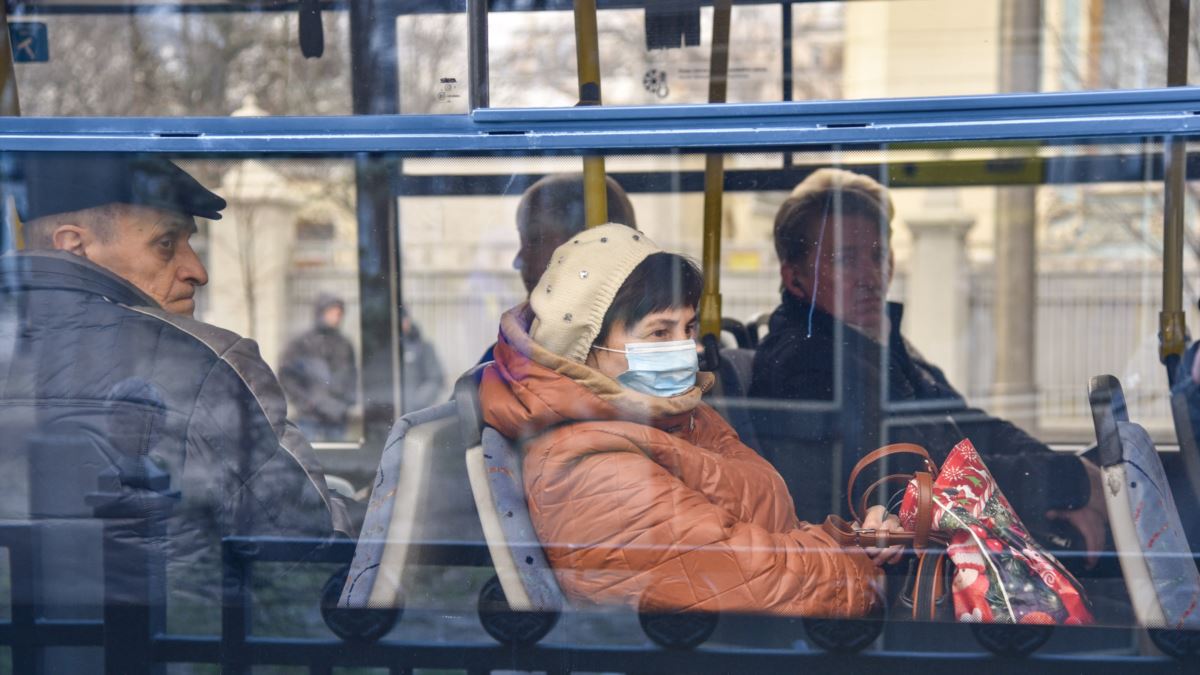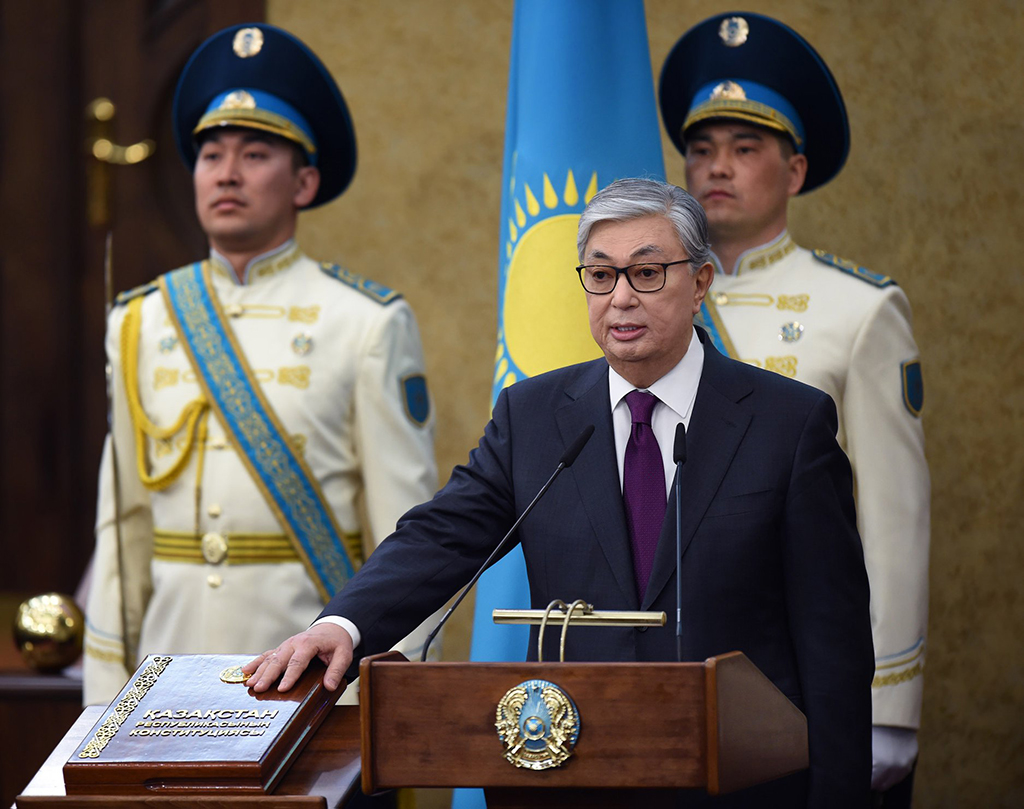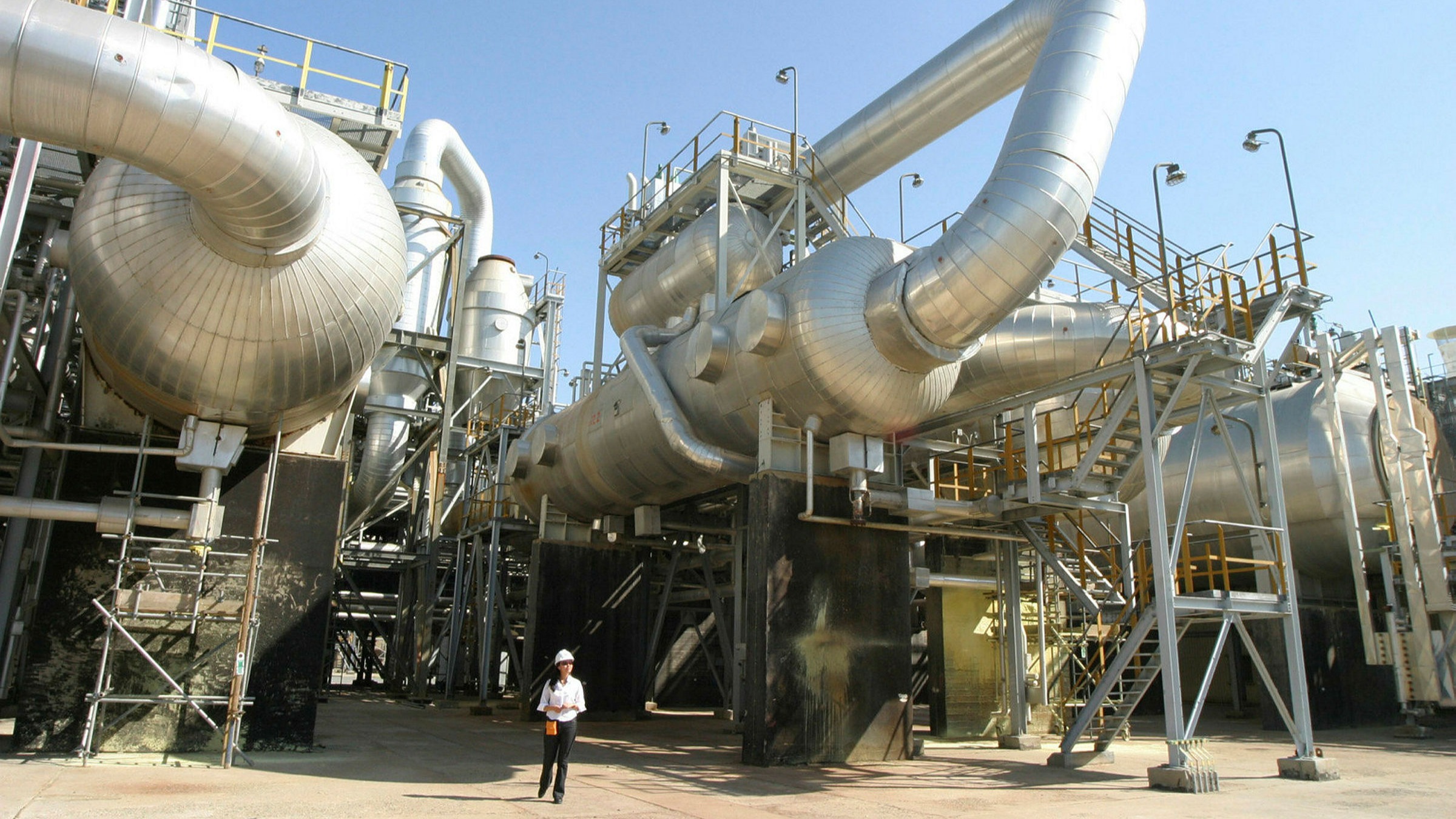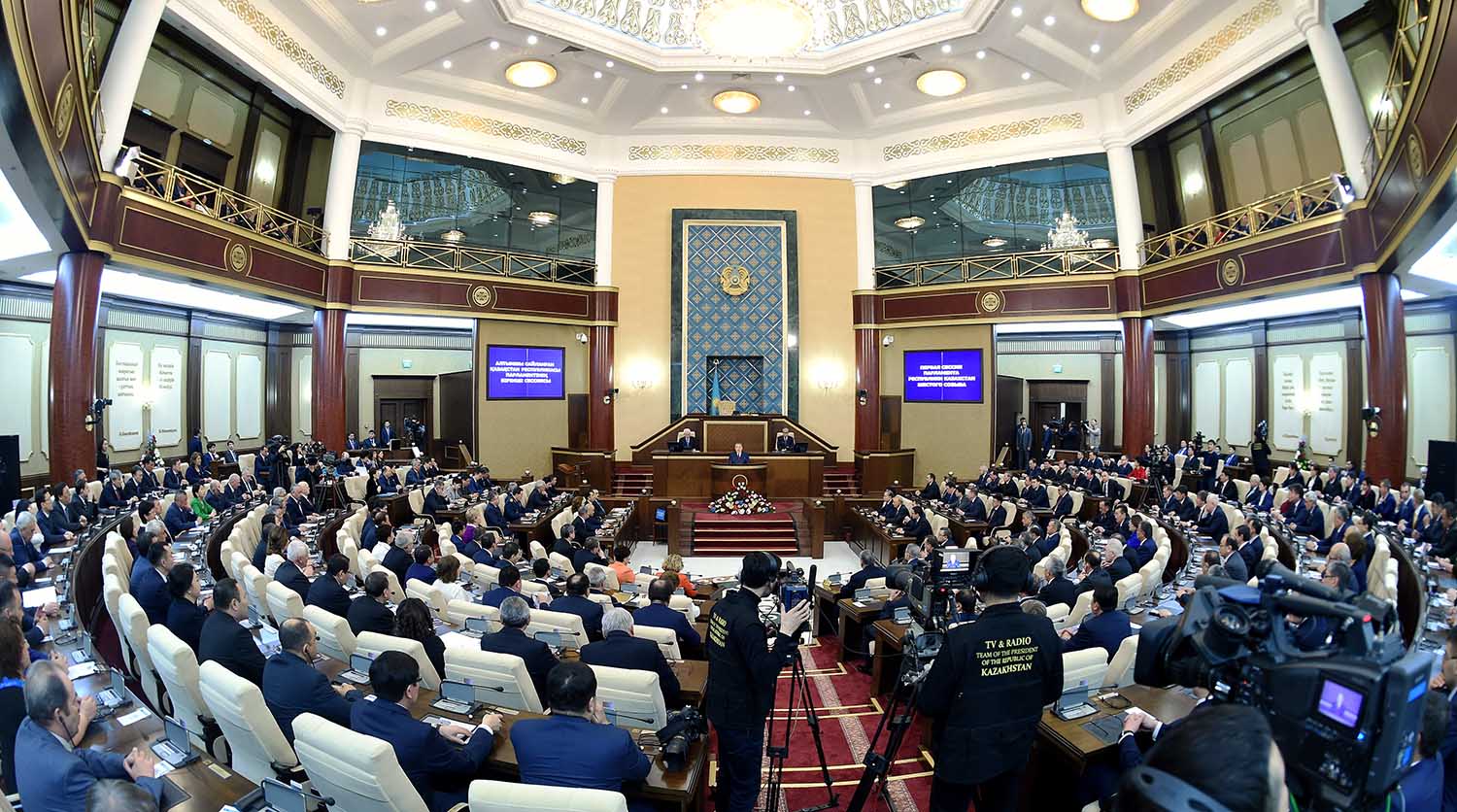Yazar: Yrd. Doç. Dr. Assel TUTUMLU – 29 July 2020 The fact that high-level government officials are contracting the virus is not unique. Indeed, the British Prime Minister Boris Johnson, as well as nearly 20 others from the US Administration among them Trump’s key confidants have been tested positive, threatening stability in these countries. Yet, for Kazakhstan, this situation can have grave implications for political stability due to the incomplete political transition in the country more than year after the first President Nazarbayev stepped down on March 19, 2019 nominating his confidant and a career diplomat Kassym-Jomart Tokayev as his successor. Yet Nazarbayev’s recent health worries undermines the stability of such scenario, especially since the first president is about to turn 80 on July 6th. With Tokayev becoming independent, Kazakhstan may complete the transition cycle and end up in a different political environment. The signs of such transition are visible after a year of Tokayev in office. In the past two months Tokayev substantially enhanced his personal authority. First of all, under the pre-text of the pandemic, he increased the scope of his power. In particular, Tokayev can announce emergency measures, can intervene into economic process, control international trade, make extra-legal changes in state administration. The discussion now is whether such powers will remain after the pandemic, since the law does not stipulate the end of the expansion period. On the one hand, the spread of the disease does require extraordinary measures in Kazakhstan. The virus has already paralysed two oil and gas fields that provide substantial amount of revenue into the state budget. The workers in Tengiz and Karachaganak fields have been diagnosed with the virus and since they live in compounds, it was only a matter od days before the virus threatened operations. A similar situation is happening in the mining industry. Kazakhmys, a copper company that employs the majority of people in Qaraganda Region also registered COVID-19 cases, which spread among the workers. As a result, the state of emergency in Western and Qaraganda provinces of the country continued despite the relaxation of quarantine measures in the rest of the country. The rapid spread of the infection after the quarantine may also require the re-introduction of the emergency measures, roadblocks, as well as movement and activity restrictions on regular citizens. Accordingly, with the dismissal of Dariga Nazarbayeva, the question that many observers ask is who is next? Tokayev already dismissed Extraordinary and Plenipotentiary Ambassador of the Republic of Kazakhstan to Georgia, Yermukhamed Yertysbayev. Yestysbayev has been a long-term ally of the President Nazarbayev and served in his presidential administration. He was famous for speaking his mind in public, for which he was sent off in 2017 to Belarus as an Ambassador. Tokayev also dismissed his major competitor, another Ambassador of Kazakhstan to Russia Mr. Imangali Tasmagambetov, who is a popular figure, but was unable to run in the elections due to the lack of residency in the country in the preceding five years to the elections. Although the same rule should have applied to Tokayev, Constitutional Council headed by Nazarbayev equated his work for the United Nations to country service, whereas Tasmagambetov’s work failed to receive similar appraisal. Both Ambassadors representing the ‘old guard’, closely tied to Elbasy, the First President and capable of challenging Tokayev’s image and authority, were dismissed when they reached the retirement age of 63. In addition, another possible future dismissal note may come to Nurlan Nigmatulin, a Speaker of Majilis, the Lower Chamber of Parliament, since he has been explicitly disrespectful to Tokayev, calling the Senate as “a collection of old pensioners”. With the control over legislative branch, Tokayev would be able to receive unprecedented political independence to rule in the same manner as Elbasy, the first president. Under the risk of a prolonged slump in its economy and soaring case numbers, the impact of the virus on the governance and politics of Kazakhstan remains unclear. While some anticipate power consolidation, others expect the strategic cooperation to continue. Both remain equally likely.

This week Kazakhstani public was shocked not by the numbers of the people infected with the COVID-19, but with the fact that the Minister of Health and later the first President Nazarbayev, who still holds informal power in the country also contracted the virus. This puts an interesting question regarding security and the stability of governance mechanisms. The question is even more relevant since the country has already been suffering from low oil proceeds due to falling international prices which put pressure on the Tenge, with the currency losing third of its value.
In the past year, Tokayev has been largely loyal to the legacy and guidance of the first President. He re-named the capital Astana to Nur-Sultan and nominated Nazarbayev’s older daughter Dariga Nazarbayeva to serve as a Senate’s speaker, which, in case of his dismissal will take charge of the country. Local and foreign observers equated such power transition to Yeltsin-Putin scenario in Russia, or that of Karimov is Uzbekistan that would avoid a downfall similar to Karimov and its negative implications for his family members which followed his death in 2016. Particularly, Karimov’s daughter, a billionaire, has been in prison for years with her property, titles and wealth confiscated. The peaceful transition of a known successor worked for Nazarbayev who retained leverages by chairing the Constitutional Council, presiding over the dominant ‘Nur Otan’ party and even keeping his presidential plane.
Perhaps more remarkably, the newly acquired powers allowed Tokayev to re-shuffle the state apparatus. In particular, he ousted in May the presidential daughter, Dariga Nazarbayeva from the position of the Senate Speaker, the Upper Chamber of Parliament, killing the chances of her becoming his successor. Before dismissal, Dariga Nazarbayeva had been filing cases to the Supreme Court questioning the expansion of executive powers by Tokayev. She has also been a vocal critic of the President for violating procedures and laws. Nazarbayeva’s dismissal opened a new door for pro-Tokayev appointees, such as Maulen Ashimbayev, a technocrat, who became known during the Nazarbayev’s reign for his management, technocratic proficiency and strategic thinking. He has served in the Security Council, worked in the Presidential Administration and now Chairs the Senate. This position offers him an opportunity to succeed Tokayev in case of his dismissal or death although only few believe that Ashimbayev can potentially lead the country. Instead, as a technocrat he is a convenient compromise between Nazarbayev, who still holds authority and Tokayev, who wants to install new people into the key positions, rather than being pestered and surrounded by an ‘old guard’.
What complicates the matters further is that the Minister of Health Mr. Yerzhan Birtanov, Tokayev’s spokesperson Berik Uali, and the Speaker of the Mazhilis Nurlan Nigmatullin have also been ill. Several high-ranking officials have interacted with both of these men in the days preceding their infections; among them is Prime Minister Askar Mamin, Minister of Education Askhat Aimagambetov, Minister of Defense Nurlan Yermekbayev, and Minister of Agriculture Saparkhan Omarov.
Covid-19 in Government of Kazakhstan: Opportunities and Vulnerabilities